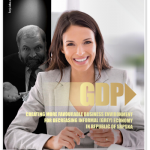
Research paper “Taxation of Wages and the Informal Economy” made by Center for Research and Studies GEA in cooperation with Union of Employers’ Associations of RS, funded by International Labor Organization (ILO), was presented at this event.


Report “Creating a more favorable business environment for decreasing informal (grey) economy in the Republic of Srpska” reveals what employers in the Republic of Srpska see as main causes of grey economy and where we stand on these matters in comparison with Serbia, Croatia, Macedonia and Austria.

Report “Creating a more favorable business environment for decreasing informal (grey) economy in the Republic of Srpska” reveals what employers in the Republic of Srpska see as main causes of grey economy and where we stand on these matters in comparison with Serbia, Croatia, Macedonia and Austria.

In June, upon the recommendation of the Government of Republic of Srpska, the Law on a Special Contribution for Solidarity was adopted. The new law introduces an additional income tax contribution amounting to 3% of the net wage, intended to fund flood damage repairs.

It is well-known that B&H’s 40% “tax wedge” – the amount of taxes and contributions on income – is relatively high when compared with that many countries. This means that for every 100 BAM that an employer pays for one registered worker, only 60 BAM goes to the worker.

The announcement by the Government of the Republic of Srpska to introduce a 200 BAM tax-exempt portion of wages is surely a welcome measure. This tax exemption is clearly insufficient, however, when we consider policies being adopted by neighboring and EU countries in their attempts to tackle the dire state of the labor market and … Continue reading How to achieve lower labor taxation without harming public funds?